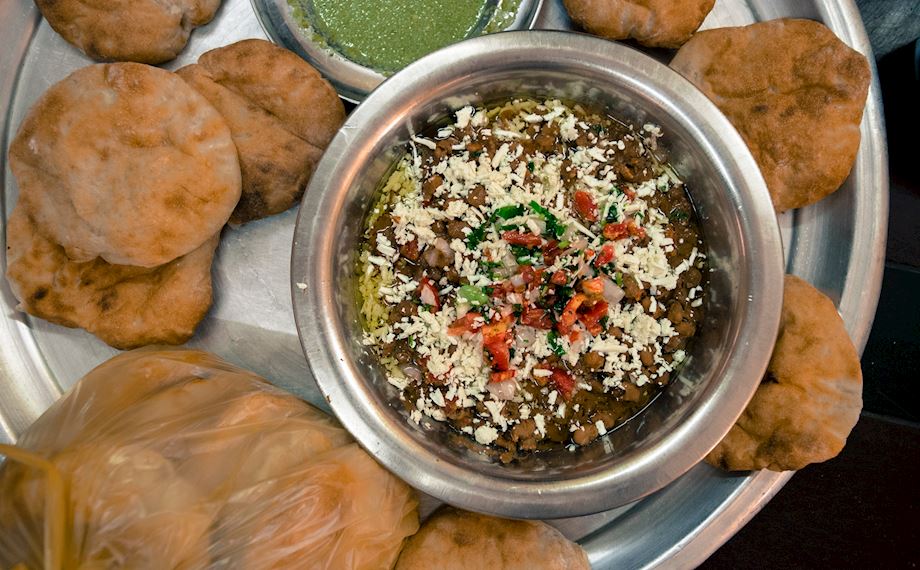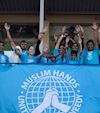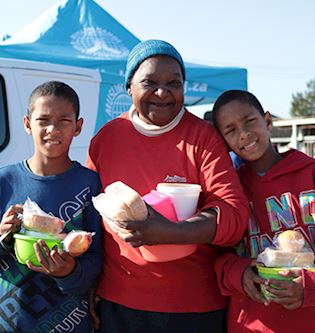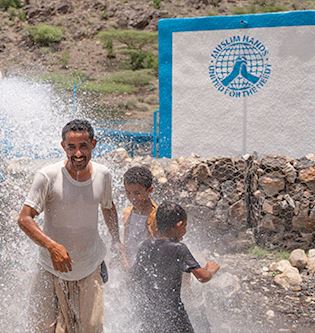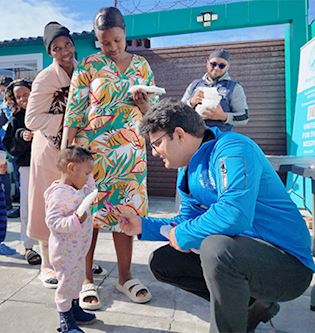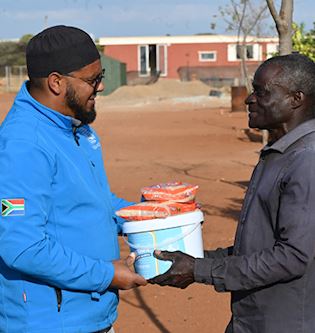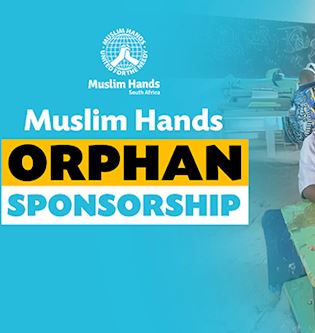Reaching The Most Vulnerable in Durban
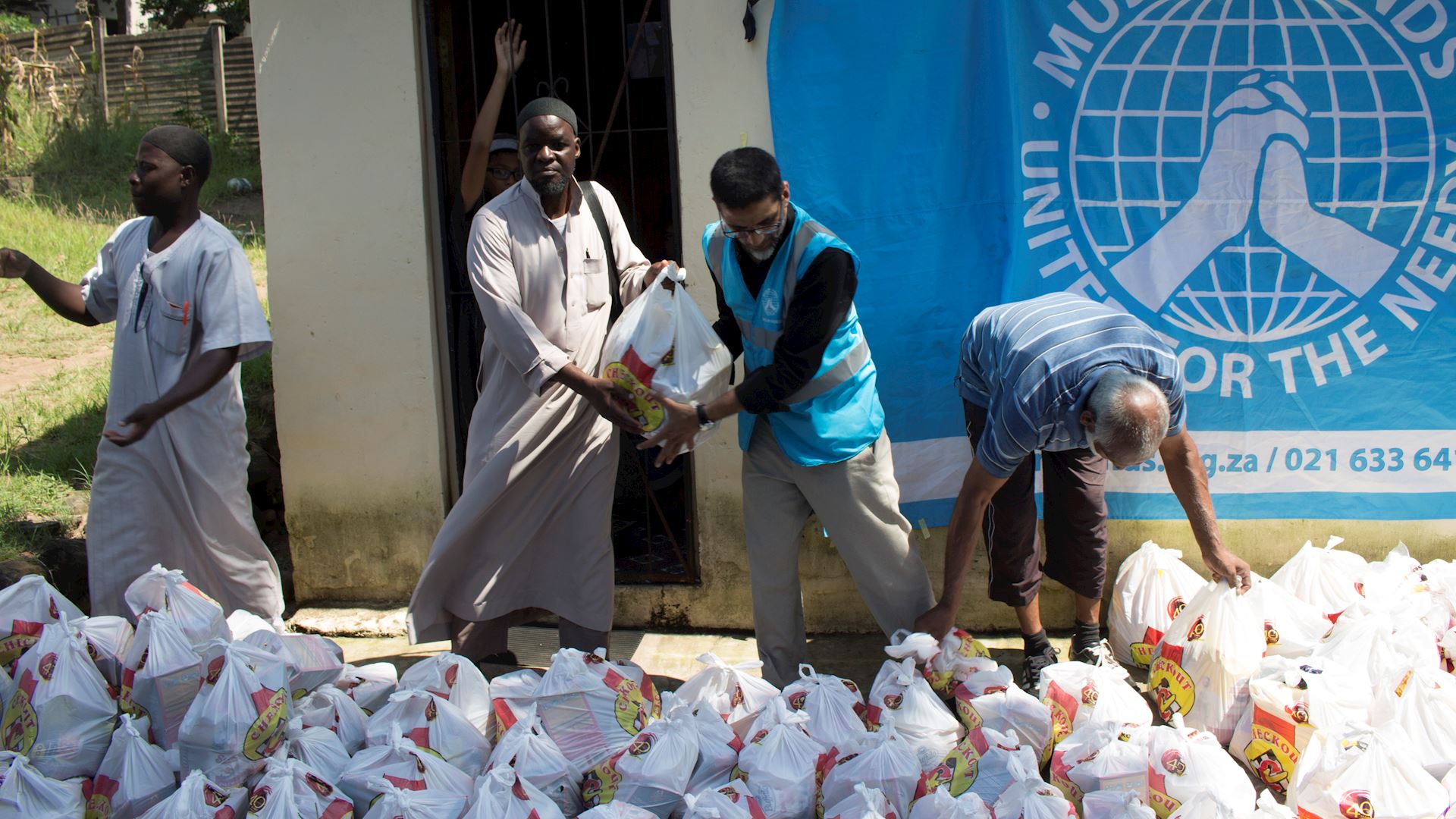
Even in a world of plenty, hunger continues to cripple lives and threaten futures. With over 15 million people in South Africa unable to feed themselves daily, it is one of the biggest problems that the country faces.
At Muslim Hands, we understand hunger can affect people in many ways and so our work reflects this reality. We take a practical and dynamic approach to the complicated issues related to hunger and run a number of campaigns to support communities in South Africa.
Throughout the year, we carry out several food parcel distributions to vulnerable people within the country. These distributions ensure that families get their basic nutritional needs. Last week Muslim hands successfully carried out distributions in Durban, Kwa-Zulu Natal where over 200 families received food parcels and hygiene kits.
On the 18th of March, our teams jetted off to sunny Durban to run the distributions in the needy communities of Pinetown and Marianhill. The first distribution took place at Pinetown Masjid where a number of the community struggle with poverty every day. Nearly half of the recipients were women who, a few years ago, embraced Islam. The parcels will go a long way in assisting them in supporting themselves and their families.
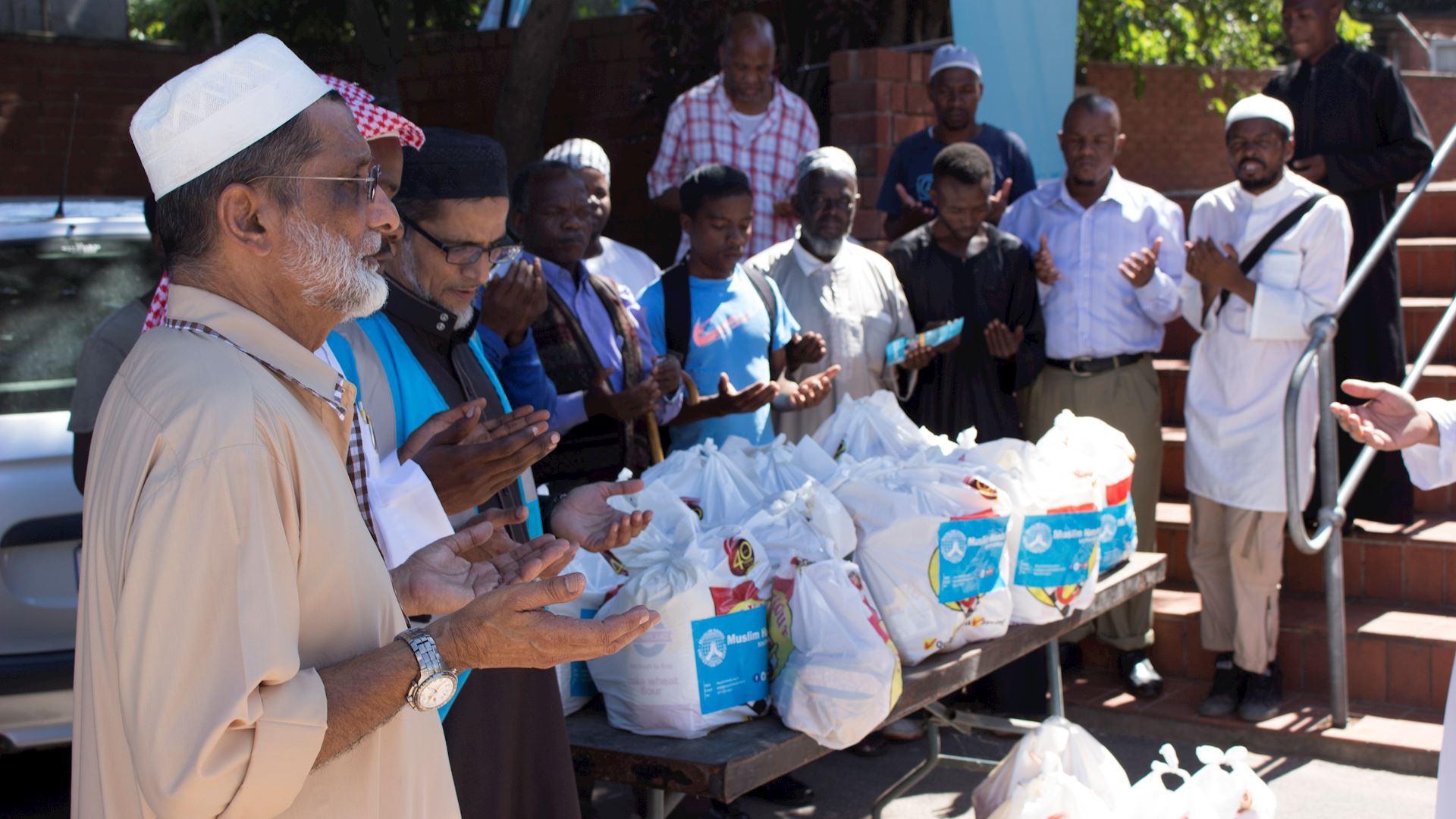
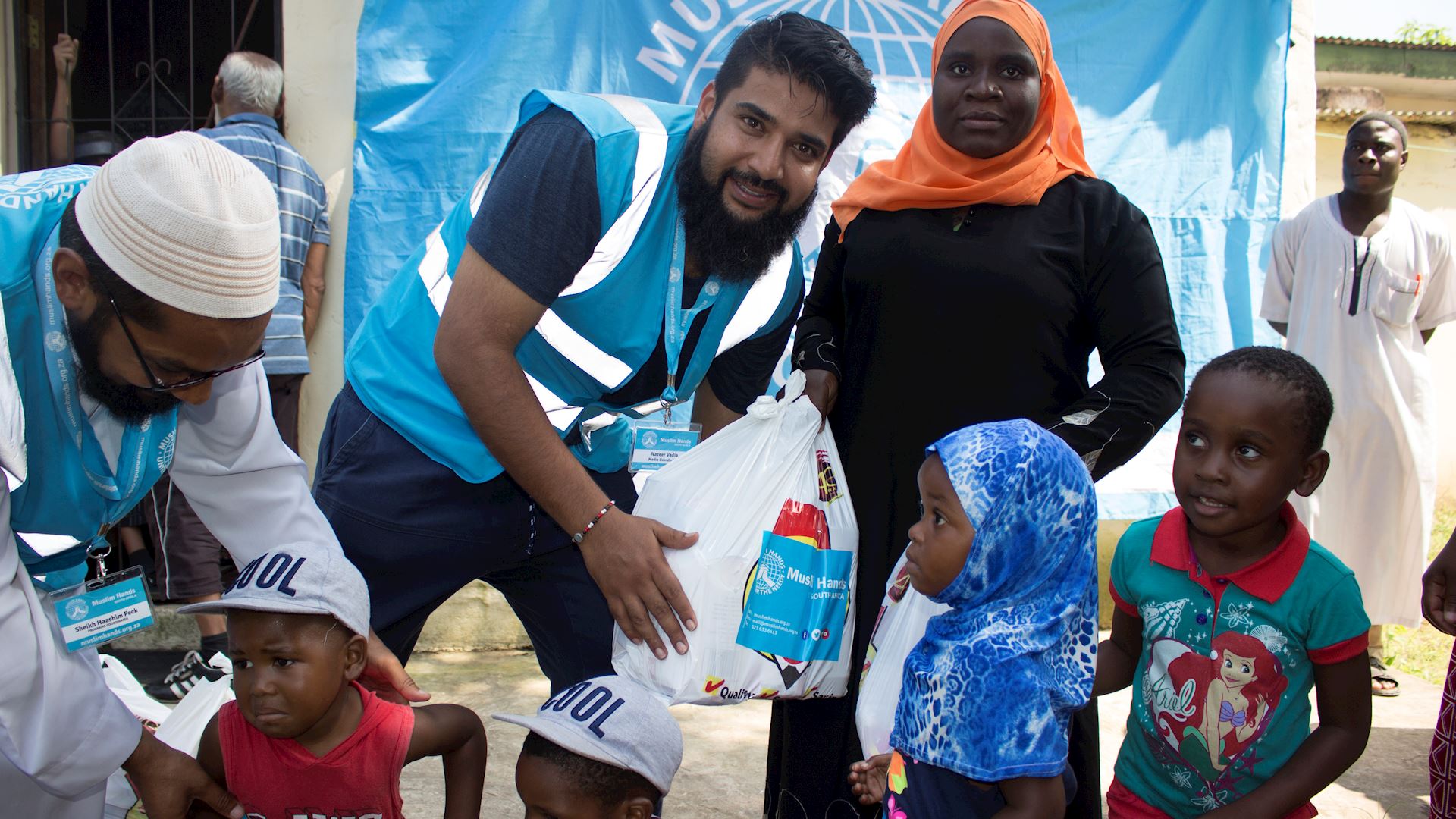
The following morning our teams set out to another local masjid in Marianhill. Approximately 60 hygiene kits and 30 food parcels were distributed to Epic Youth Matters, an organisation for previously abused girls from the area. Another 85 food parcels were then distributed to families in the community. From providing sweets for the children, to interacting with the locals and seeing smiles on their faces, the team thoroughly enjoyed the project.
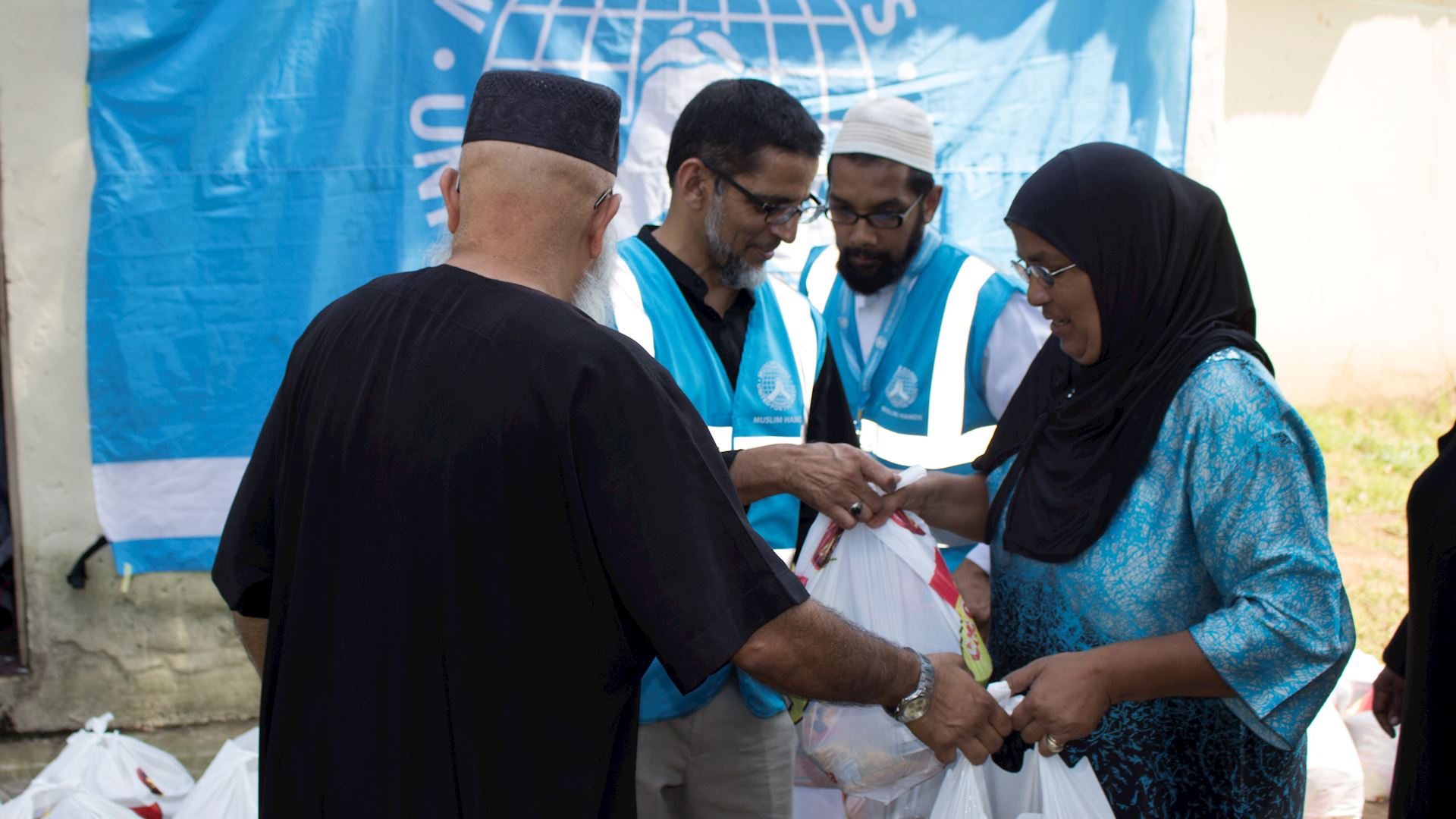
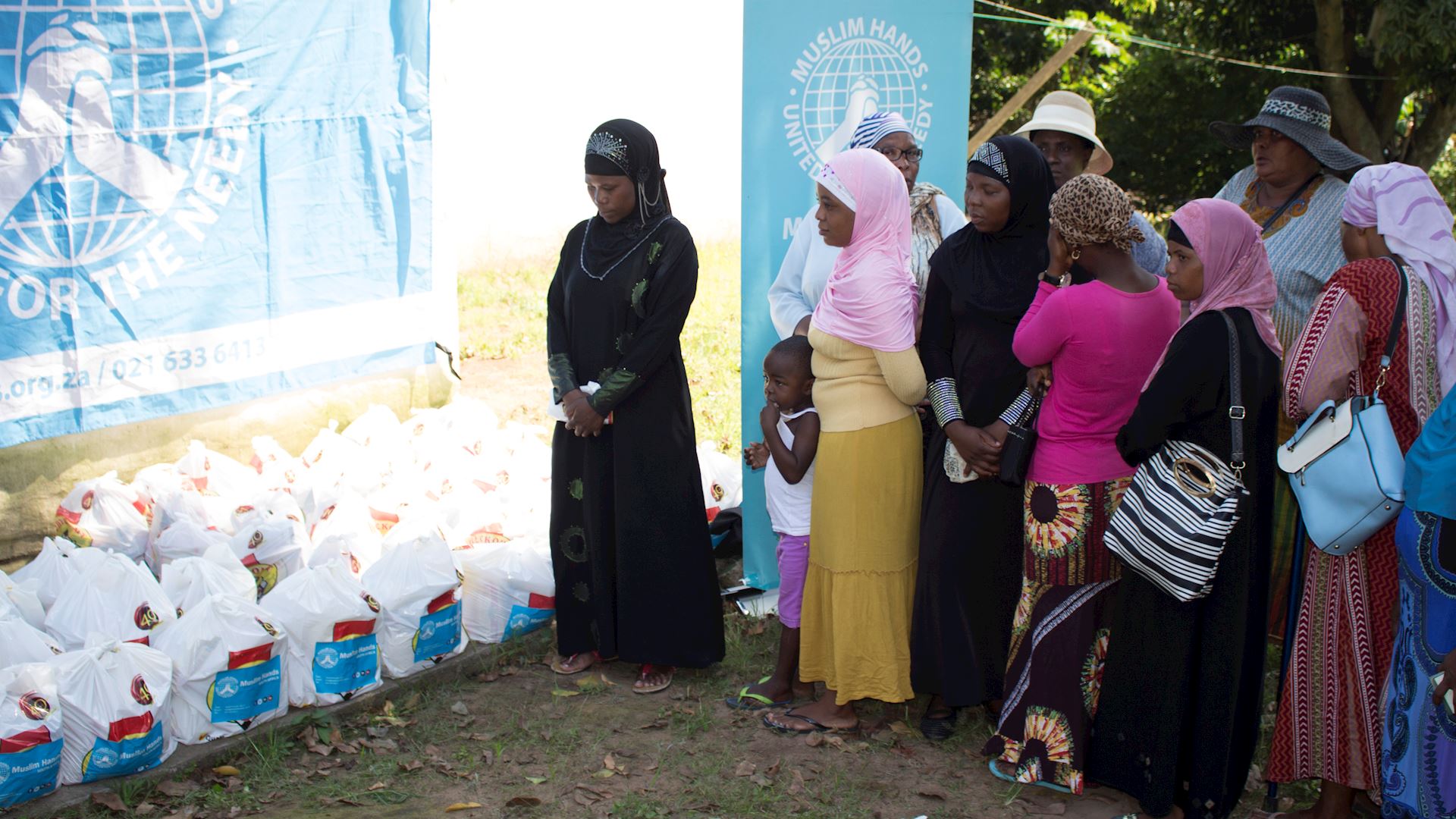
All in all, over 200 people received food parcels and 60 impoverished girls received hygiene hampers. The Durban projects were in keeping with Muslim Hands’ aim and objective to increase good work in provinces around South Africa. We will continue to assist poor and needy communities in the Western Cape and strive to reach as many impoverished communities as possible





